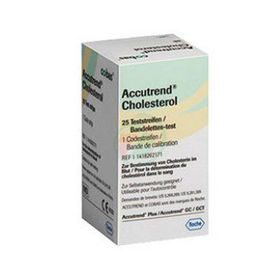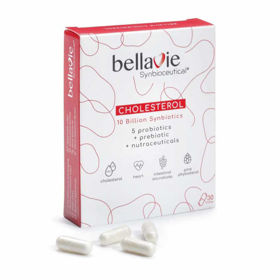Customer question:
Why can high cholesterol be dangerous? Anonymous customer's question
Pharmacist's answer:
Elevated cholesterol is dangerous because of its potential impact on cardiovascular health. Cholesterol is a fatty substance necessary for the body's normal functioning, but an excessive amount of cholesterol in the blood can cause serious health problems.
The main danger of high cholesterol is its association with the development of atherosclerosis, a process in which fatty deposits, including cholesterol, accumulate on the inner walls of arteries. This reduces the diameter of the arteries and restricts blood flow to vital organs such as the heart and brain. Atherosclerosis can cause very serious complications, such as heart attack and stroke.
A heart attack occurs when blood flow to the heart muscle is blocked, which can cause damage or destruction of heart tissue. If an artery that supplies blood to the heart is blocked by atherosclerosis, a heart attack can develop. On the other hand, a stroke occurs when blood flow to the brain is interrupted, usually due to a blocked artery or blood clot. If the blood supply to the brain is interrupted, it can lead to serious neurological problems, including loss of speech, paralysis, or even death.
In addition, high cholesterol can cause other cardiovascular problems, such as peripheral artery disease, angina pectoris, and aneurysms. Peripheral artery disease causes narrowing of the arteries in the legs, which can cause pain when walking and even gangrene. Angina pectoris is chest pain that occurs when the heart is not getting enough oxygen, often due to the narrowing of the coronary arteries. Aneurysms are abnormal expansions of arteries that can lead to bleeding or rupture.
That is why monitoring your cholesterol level and taking action if it is too high is crucial. This can include lifestyle changes such as eating a healthy diet, regular exercise, stopping smoking, and taking medicines such as statins to lower blood cholesterol levels if necessary. Reducing cholesterol levels can reduce the risk of cardiovascular diseases and improve our health and quality of life.
Can high cholesterol be fatal?
Elevated cholesterol can lead to severe complications, including heart attack and stroke, which can also lead to death. If the arteries become severely narrowed or completely closed due to atherosclerosis, which results from high cholesterol, blood flow to the heart or brain can be cut off. This can lead to damage or death of heart or brain tissue, which can lead to a heart attack or stroke. Therefore, it is essential to control cholesterol levels and take appropriate measures to reduce the risk of cardiovascular complications.
Interesting reading: Cholesterol drugs
Interesting reading: Cholesterol-pills side effects












 Facebook
Facebook
 Instagram
Instagram
 info@moja-lekarna.com
info@moja-lekarna.com

